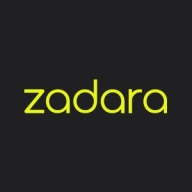

Oracle Cloud Object Storage and Zadara compete in the data storage solutions category. Zadara appears to have an upper hand due to its adaptable features and user flexibility.
Features: Oracle Cloud Object Storage is praised for its high durability, scalability, and security. It seamlessly integrates with Oracle’s suite of services. Zadara is noted for its customizable storage options, flexibility, and performance. The key difference is Zadara's adaptability, which users find more advantageous compared to Oracle’s more integrated yet rigid structure.
Room for Improvement: Users of Oracle Cloud Object Storage suggest enhancements in its documentation and a more intuitive management console. They would also like to see improvements in integration with non-Oracle services. Zadara users recommend improvements in customer support, a more streamlined setup process, and better cost predictability.
Ease of Deployment and Customer Service: Oracle Cloud Object Storage is recognized for its straightforward deployment within Oracle ecosystems, though the initial setup can be complex. Oracle’s customer service receives positive feedback. Zadara offers an easy deployment process, particularly in hybrid and multi-cloud environments. However, Zadara's customer service is viewed as needing more timely responses.
Pricing and ROI: Oracle Cloud Object Storage offers competitive pricing with substantial ROI, appealing to budget-conscious users who prioritize integrated solutions. Zadara's pricing is higher, but users find the ROI justified due to its extensive features and flexibility. Therefore, Zadara is seen as worth the higher cost for users needing customizable solutions.


Scale with no new hardware - eliminates new capital expenditures, opens up data center space and reduces power and cooling requirements.
Elastic storage - shared infrastructure allows for infinite scalability. Eliminates forecasting and long procurement cycles.
Pay as you go and subscription models - purchase capacity with no commitment or reduce costs with longer-term agreements
Simple to manage industry standard OpenStack and RESTful APIs streamline management integration, freeing resources to accelerate other cloud projects.
Zadara is a powerful enterprise-level storage solution whose design enables it to handle every aspect of a user’s data storage needs. It can be deployed in any location, using any protocol, and storing any data type that an organization requires. With Zadara, organizations can do everything that they were able to do with more traditional systems in a cheaper and more efficient way.
Zadara Benefits
Some of the ways that organizations can benefit by choosing to deploy Zadara include:
Zadara Features
File analytics. Organizations can leverage a powerful analytics package that can provide them with critical insights. These tools can help users sort through their data and make more informed data management decisions.
Reviews from Real Users
Zadara is a highly effective solution that stands out when compared to many of its competitors. Two major advantages it offers are its extensive suite of cloud solution integrations and its object storage capability.
Steve H., the chief technology officer at Pratum, writes, “One of the most valuable features is its integration with other cloud solutions. We have a presence within Amazon EC2 and we leverage computer instances there. Being able to integrate with computing, both locally within Zadara, as well as with other cloud vendors such as Amazon, is very helpful, while also being able to maintain extremely low latency between those connections.”
Mauro R., the CEO of Momit SRL, says, “The object storage feature is wonderful. With traditional storage, you have a cost per gigabyte that is extremely high or related to the number of disks. With Zadara Storage Cloud, you have a cost per gigabyte that you can cut and tailor to your needs independent of the number or size of the disks.”
We monitor all Public Cloud Storage Services reviews to prevent fraudulent reviews and keep review quality high. We do not post reviews by company employees or direct competitors. We validate each review for authenticity via cross-reference with LinkedIn, and personal follow-up with the reviewer when necessary.